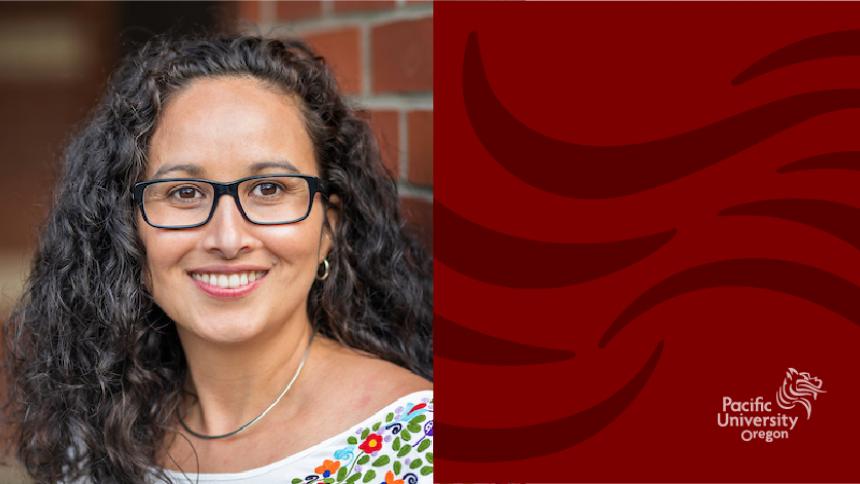Here are some of the ways that the School of Graduate Psychology's Sabiduría students have been supporting the mental health of the Latinx community in Oregon affected by COVID and the recent sociopolitical climate and our plans for continuing this work.
SGP Latin-American Mental Health Program
General Overview
The mission of the Latin-American Mental Health Program is to a) prepare culturally competent clinicians who are fluent in Spanish, committed to serving the mental health needs of Hispanic and Latin-American-Spanish-speakers and b) promote research and scholarship on the mental health of Spanish-speaking individuals, in the United States and abroad.
The Latin-American Mental Health Program welcomes students from the PhD, PsyD, and ACP programs within the School of Graduate Psychology who have at least advanced Spanish proficiency as determined by ACTFL levels. Students must fulfill the requirements of the program and be involved in it for 2 full years in order to be recognized as a member upon graduation.
First year PhD and PsyD students interested in the program without requisite Spanish fluency can join at the beginning of their third year if they achieve the required ACTFL fluency level. Due to the clinical focus, there is not an opportunity to learn the language as part of the program. Students interested in gaining fluency may explore that possibility through the Spanish program on the undergraduate campus.
There are four components to achieve the mission:
- Coursework
- Clinical Requirements
- Research
- Local, State and International Outreach
Coursework
- Treatment Planning and Intervention Bilingual Lab
- Clinical Interventions with Spanish speakers
- Forensic evaluation with Hispanic and Spanish speaking clients and/or Hispanic Cultures and Healthcare
Clinical Requirements
For doctoral students and ACP students, their first clinical experience must include work with Hispanic and Latin-American Spanish-speaking clients. Additionally, for doctoral students, at least one of the community-based clinical training experiences (either Practicum II or an Advanced Practicum or Fieldwork) must be focused on Spanish-speaking populations as combined with other interests or emphasis.
Example of Practicum Placements
- Laura Renteria, Neuropsychologist
- Mangata Wellness
- Pacific Psychology & Comprehensive Clinic
- Raices de Bienestar
- Willamette Family Medicine Center
- Western Conexiones
- Yakima Valley Farm Workers Clinic - Salud Medical Center
Research
For doctoral students and ACP students, their dissertation or thesis/evidence-based practice sample must be completed within an area of Spanish-speaking mental health, or include it as a major component in accordance with program research requirements. Students must include a faculty member from the Latin-American Mental Health program or a clinical mentor with expertise in the Hispanic and/or Spanish-speaking community of interest in their committee.
Outreach
Students will engage in community outreach activities to raise awareness of the mental health needs of Spanish-speaking individuals and to promote access to mental health services. These activities may include:
- Conducting needs assessments in Spanish-speaking communities in conjunction with other college of health sciences departments (e.g., optometry, dental hygiene, physical therapy).
- Providing educational workshops on mental health for Spanish-speaking families and community members.
- Developing partnerships with community organizations to provide mental health services to Spanish-speaking individuals.
The outreach activities may also include an international exchange component that could be implemented in a number of ways, such as:
- Applying for scholarships/fellowships that support the opportunity to study abroad in a Spanish-speaking country.
- Partnering with universities in Spanish-speaking countries or Puerto Rico to conduct research in clinical areas.
Every year, students must engage in at least two community outreach activities for the duration of their academic program (e.g., attending a health fair in the spring, applying for a Fulbright scholarship in the fall). Doctoral students are exempt from this requirement while completing their pre-doctoral internship.
Faculty
Faculty and clinical supervisors in the Latin-American Mental Health Program include a mix of full-time and part-time faculty in addition to community psychologists who provide teaching, supervision, and research mentoring to students. Faculty areas of specialization include mental health evaluation; neuropsychological assessment; integrated health care; child and adolescent behavior problems; forensic assessment, substance use disorders, and problem gambling among others.
Leonardo Bobadilla, PhD - Director
Joaquin Borrego, Jr., PhD - Professor
Patsy Manzanares, PsyD - Instructor
Alexia Deleon, PhD - Clinical Supervisor
Admission & Selection
Application to the Latin-American Mental Health Program occurs after students are admitted into the SGP Program and selected into their respective School of Graduate Psychology program. Students will receive an email with the application requirements and the deadline. Students interested in the experience must send the application and a letter of interest to the director before the admissions deadline (mid-Fall semester of first year). Students are identified on the basis of academic strength and fit with the experience and ACTFL test scores.
For more information contact Leonardo Bobadilla, PhD.
Headlines
In partnership with Pacific University, Providence Promotores are holding Facebook live events to help support the Latinx community. The live events focus on mental health and well being and include topics such as stress management, depression and suicide prevention.
Pacific University Professor Ruth Zúñiga, the director of Pacific’s Sabiduría: Latina/o Psychology Emphasis, was awarded a pair of grants to support the outreach work she and her students conduct in the LatinX community.





